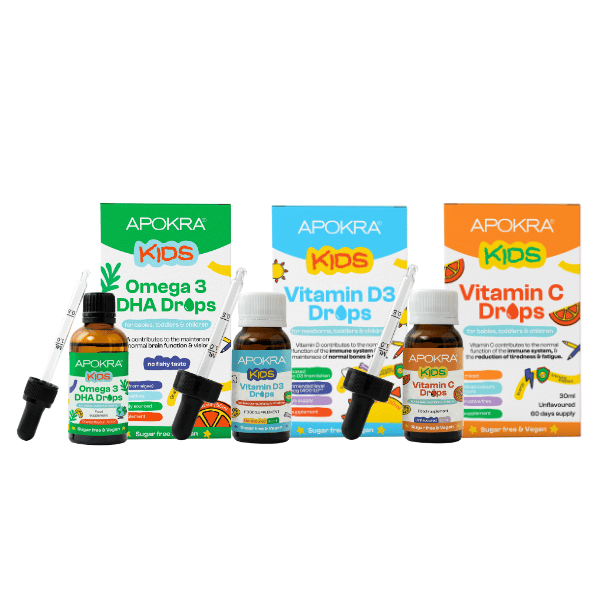Vitamin C Deficiency: Signs and Symptoms

Vitamin C deficiency is a lack of vitamin C within the body. Vitamin C deficiency can be quite common in those that do not obtain enough within their diet or in those that have specific underlying health conditions. Vitamin C deficiency can range in how serious it is. Varying from symptoms like tiredness to a serious health condition like scurvy. The condition scurvy can be caused by not having any vitamin C for 3 months or more (1). The article below discusses in detail the signs and symptoms of vitamin C deficiency.
What is Vitamin C?
Vitamin C is a water-soluble vitamin, and it is also known as ascorbic acid. Vitamin C is an essential dietary vitamin that the body cannot make on its own. This means that vitamin C must be obtained in the diet. Vitamin C is found naturally in certain food groups including fruit and vegetables but can also be obtained from vitamin C supplementation. Vitamin C is classed as an antioxidant and helps protect the cells in the body against the harmful effects caused by free radicals. Free radicals can cause damage and mutation of human cells and these mutations can lead to diseases like cancer.
Benefits of Vitamin C
Vitamin C is a powerful antioxidant with many health benefits. Vitamin C helps protect the cells in the body from damage by free radicals. Vitamin C primarily plays a beneficial role in immune support and the protection of cells from damage in the body. Other benefits of vitamin C include contributing towards cell health, helping maintain healthy skin, blood vessels, bones, and plays a role in wound healing. A lack of vitamin C can increase an individual’s risk and make them more susceptible to catching viral and bacterial infections. Interestingly, vitamin C can increase iron absorption and is usually recommended to be taken in conjunction with iron supplements for anaemia.
Who is at risk of Vitamin C Deficiency?
Risk factors for vitamin C deficiency include those with a poor diet lacking in fresh fruit and vegetables, smokers, alcoholism, anorexia, severe mental illness and those who have kidney disease who get dialysis. People that have inflammatory bowel disease like Crohn’s disease and ulcerative colitis are also at risk as they have an increased risk of not being able to absorb adequate levels of vitamin C.
10 Symptoms of Vitamin C Deficiency
It is important to look out for the signs and symptoms of vitamin C deficiency, so that action can be taken to correct levels within the body. Some common signs and symptoms of vitamin C deficiency are listed below:
- Fatigue and weakness – vitamin C supports energy production in the body. Vitamin C is used by the body to aid the conversion of food and drink into energy the body can utilise. If the body lacks vitamin C, then it can lead to fatigue and weakness as it is unable to efficiently convert food into energy.
- Joint pain – joints contain collagen. Vitamin C is needed for collagen production. If the body is deficient in vitamin C, then it can cause the connective tissue, made up of collagen, to become weak and brittle.
- Dry skin, rough and bumpy skin – Normal skin contains high concentrations of vitamin C (2). Vitamin C can help protect the skin against free radical damage due to its antioxidant properties. Vitamin C also plays are role in collagen production. Collagen improves skin hydration and elasticity (3).
- Easy bruising – vitamin C supports collagen production. Collagen is an important part of blood vessels. If the amount of vitamin C available to the body is low, then less collagen can be produced which can in turn lead to weaker blood vessels which can result in bruising.
- Inflamed or bleeding gums – bleeding and inflamed gums can be caused by a lack of vitamin C. This happens because vitamin C is required for healthy gum tissue and strong blood vessels. Without vitamin C these structures are weakened, and it can eventually result in teeth falling out.
- Anaemia – low levels of vitamin C can result in iron deficiency anaemia. This happens because vitamin C plays a central role in the absorption of iron in the body.
- Low mood and irritability – low mood and irritability are usually two of the first signs of vitamin C deficiency. This symptom of vitamin C deficiency can be resolved by vitamin C supplementation fairly quickly in most circumstances.
- Slow healing wounds – collagen is required in the healing of the wound. As vitamin C is required in the production of collagen, a deficiency can ultimately result in slow wound healing.
- Bright red hair follicles - The scientific name of this condition is called Keratosis Pilaris, more commonly known as chicken skin. This condition is where the skin has bright red pimples, particularly in and around the hair follicles. The bumps can be raised. A lack of vitamin C over a period means that new collagen cannot be formed, this leads to other skin related conditions.
- Low immunity – vitamin C is an essential micronutrient and a potent antioxidant. Vitamin C aids the body’s immune system by protecting against oxidative stress. Vitamin C deficiency impairs immunity and makes the body more susceptible to infections (4).
Foods rich in Vitamin C
Foods rich in vitamin C include fresh fruits and vegetables. It is recommended that adults should obtain at least 40mg of vitamin C each day through their diet. Foods naturally high in vitamin C include:
- Citrus fruits like oranges and lemons – one lemon provides 45mg of vitamin C
- Berries including blueberries, blackcurrants, strawberries and elderberries – Half a cup of blackcurrants provides 102mg of vitamin C
- Acerola Cherries – Half a cup of acerola cherries provides 825mg of vitamin C
- Broccoli – Half a cup of cooked broccoli provides 51mg of vitamin C
- Peppers – Sweet yellow peppers provide 342mg of vitamin C
Other foods high in vitamin C include parsley, papaya, tomatoes and white potatoes.
Vitamin C is broken down by heat, this means cooking foods will reduce their vitamin C concentration. Fresh raw/uncooked foods like fruits and vegetables are the best source of vitamin C as they retain their vitamin C concentration.
Vitamin C Supplements
Vitamin C supplements can be a good option for those that have a lack of vitamin C in their diet. People most at risk of vitamin C deficiency and therefore good candidates for vitamin C supplementation include those with hectic lifestyles, poor diet and children. Poor diet is one of the most common risk factors for a lack of vitamin C, for example those that primarily eat convenience or junk foods. If it is difficult to obtain vitamin C through diet alone, then it is recommended and would be of benefit to supplement with a vitamin C supplement.
For adults, it is recommended not to take any more than 1000mg of vitamin C daily in supplement form. For children the recommendation is between 15mg and 75mg daily depending on age. Vitamin C is a vitamin that needs to be taken daily as it cannot be stored by the body for future use. Vitamin C is a very safe supplement and any vitamin C not absorbed by the body is excreted in the urine.
It can be especially difficult to encourage children to eat fresh fruits and vegetables that are high in vitamin C. This puts children at a higher risk of not obtaining their recommended daily intake. A vitamin C supplement can be of benefit for children, and it is recommended by the department of health that all children from 6 months to 5 years of age take a vitamin C supplement daily. Apokra Kids Vegan Vitamin C drops provide vitamin C in a convenient fuss free liquid drop form and is free from artificial colours or flavours. Apokra Kids vitamin C can also be mixed easily mixed into children’s food or drink going unnoticed, so it is a great option for fussy kids. It also tastes great directly off the dropper.
In conclusion, vitamin C is an essential micronutrient that must be obtain through the diet. Vitamin C deficiency can be resolved easily in most cases by supplementing with vitamin C or improving dietary intake of vitamin C. Vitamin C supplementation can improve vitamin C deficiency symptoms by providing a high level of vitamin C that can be absorbed. Daily vitamin C supplementation has also proved effective in helping prevent vitamin C deficiency. This in turn has health benefits for the body including supporting the immune system and reducing tiredness and fatigue.
- https://www.nhs.uk/conditions/scurvy/
- https://www.ncbi.nlm.nih.gov/pmc/articles/PMC5579659/#:~:text=Normal%20skin%20contains%20high%20concentrations,protection%20against%20UV%2Dinduced%20photodamage
- https://www.ncbi.nlm.nih.gov/pmc/articles/PMC6835901/
- https://www.ncbi.nlm.nih.gov/pmc/articles/PMC5707683/








Comments
Leave a comment
Your Email Address Will Not Be Published. Required Fields Are Marked *